
Got some free time? Let’s watch Netflix…
Just kidding!
I’m not really into binge-watching web series. Instead, I love learning and exploring new skills.
Whether it’s for career growth or personal development, I’m always eager to pick up new knowledge.
As the saying goes, knowledge never goes to waste. That’s why, for me, everything I learn is a valuable skill.
If you’re ready to ditch Netflix and invest in skills that will pay off for a lifetime, this article is a must-read.
In today’s world, there’s nothing you can’t learn—it just takes curiosity and the drive to grow. We often hear the phrase “Never stop learning,” but what should you actually focus on?
Let me help you figure that out.
You need to learn skills that are not only useful but also rewarding, both personally and professionally. Skills that will set you apart and make learning an enjoyable experience. Most importantly, skills that will pay you forever.
With that in mind, I’m going to break down 18 valuable skills you should learn. Plus, I’ll share the best resources to help you master them.
Before we dive in, let’s clarify something important:
There are two main types of skills—hard skills and soft skills.
- Hard skills refer to technical knowledge, like coding, writing, or graphic design.
- Soft skills involve how you present and apply that knowledge—think communication, leadership, or problem-solving.
Believe it or not, both are equally essential for success in your career and personal life. That’s why, in this guide, we’ll cover both types of skills.
Excited?
Let’s get started!
18 Useful Skills You Can Learn in 2025:
1. Proficiency in Excel
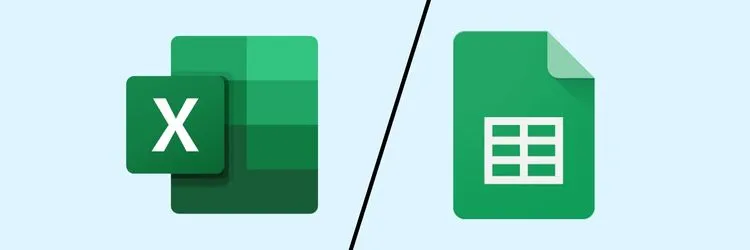
No matter your profession, Microsoft Excel is a must-learn tool. Despite the rise of newer technologies, Excel remains a powerful and widely used tool across various industries.
But its usefulness isn’t limited to business alone. Whether you’re calculating monthly expenses, tracking travel costs, or managing a company’s finances, Excel can help you stay organized.
Students can also benefit from Excel by simplifying complex tasks, organizing study schedules, memorizing the periodic table, and more.
No matter what you do, Excel is a great tool for capturing and organizing ideas. As you learn more tips and tricks, handling data will become even easier.
And if you prefer an alternative, Google Sheets offers similar functionality—so upskilling in either tool can be a game-changer!
How to learn:
You can take advantage of Microsoft’s free Excel Video Training course, offered directly by Microsoft. Or, if you’re a beginner, consider these two free courses:
- “Introduction to Microsoft Excel” on Coursera
- “Useful Excel for Beginners” on Udemy
However, Excel is all about practice—simply watching video tutorials won’t be enough. The best way to learn is by applying it to your daily data-related tasks. So, start practicing and make Excel a part of your routine!
2. Learning How to Code
Coding, programming, and development might seem like rocket science, right?
And you might be wondering, How can learning to code be a useful skill?
Let me tell you…
Coding connects you to the digital world and the latest technology. It expands your mind, enhances creativity, and gives you a deeper understanding of how things work. You probably use WhatsApp, Facebook, Instagram, or gaming apps every day—but learning to code helps you grasp how their algorithms function, the role of machine learning, and the AI behind them.
Everything around us runs on code. Even what you’re reading right now has an HTML structure behind it.
No matter your field—Science, Medicine, Finance, or any other industry—I highly recommend learning to code. It helps you understand the technology shaping our world, and who knows? You might even develop your own app in a field you’re passionate about!
And with AI tools like ChatGPT, learning to code and building applications has never been easier. However, if you’re serious about mastering this skill, I strongly suggest taking a structured course to guide your learning.
The future is coded—are you ready to be a part of it?
How to learn:
Coding is a vast field with numerous programming languages, and if you’re a complete beginner, getting started can feel overwhelming.
That’s why I recommend reading “100 Days of Code – Complete Roadmap for Beginners” by a software engineer. This article provides a structured guide on what to learn and how to start your coding journey.
If you already have a basic understanding of coding, Codecademy is a great platform to dive deeper.
You can choose specialized subjects like Web Development, Data Science, Cybersecurity, Machine Learning, Game Development, and more—then start learning the necessary programming languages.
Another In-Demand Skill: UX Design
Just like programming, UX Design is a highly sought-after skill in 2023. If you’re interested in learning it, I strongly recommend taking the Google UX Professional Certificate course—an excellent resource for mastering UX fundamentals.
🚀 Whether it’s coding or UX design, now is the perfect time to upskill and future-proof your career!
3. Finance Literacy
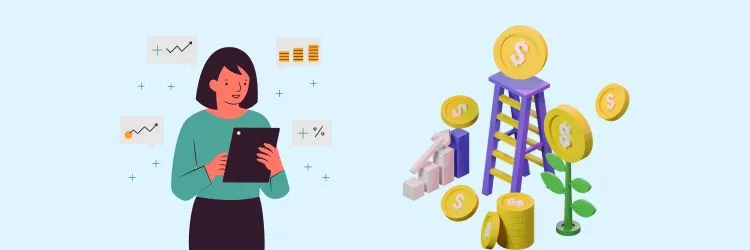
Having a strong understanding of finance empowers you to manage your money wisely. It helps you make crucial financial decisions—whether it’s balancing your budget, funding your child’s education, or securing wealth for retirement.
And the best part? Smart saving and investing can grow your wealth significantly. Plus, with solid financial knowledge, you could even offer paid consulting, helping others decide whether to buy or rent a house, plan for retirement, and more.
Money is essential, but without financial skills, you might find yourself struggling day after day.
So, don’t you think finance is a must-learn skill?
How to learn:
You may read Rich Dad and Poor Dad by Robert Kiyosaki and I Will Teach You To Be Rich by Ramit Sethi to educate yourself on finance.
There are also some cool finance blogs like Wise Bread, and Get Rich Slowly available on the internet where you can get basic and effective personal finance guides.
If you’re interested in learning with a course, you may consider The Complete Personal Finance Course: Save, Protect, More by a finance guy Chris Haroun on Udemy.
4. Investing in Stocks
If you’re in your teens or 20s and exploring valuable skills to learn, you might overlook investing and trading. Many people believe the “right time” to start investing is after getting a job or getting married, but in reality, there’s no perfect age to begin.
The earlier you start, the better your returns can be. You might be surprised to know that Warren Buffett bought his first stock at just 11 years old!
That said, it’s never too late to start investing. The amount you invest doesn’t matter as much as where you invest. However, before diving in, it’s crucial to understand market trends, conduct fundamental analysis of stocks and companies, and make informed decisions.
So, if you’re a college student, don’t you think learning to invest wisely could help you earn some extra pocket money?
How to learn:
If you have no idea about investing in stocks you may read Investing 101 book by Michele Cagan.
I’ll also highlight two resources to learn Investing and fundamental analysis from scratch:
- Varsity by Zerodha: Markets, Trading, and Investing Simplified
- Investing 101: Free Online Investing Course for Beginners
You may also purchase a course, Investing In Stocks: The Complete Course! (14 hours) on Udemy to get a better understanding through video lectures.
5. Learning a New Language
Learning a new language doesn’t just open up the world for you—it also feels amazing to speak a language beyond your native one. The journey of learning a language is beautiful in itself.
When you learn a new language, you also get to explore its culture. For example, if you learn French, you can experience France in a much deeper way than by speaking only English.
I have seen many Japanese and other foreigners speaking Hindi, and they connect with India in a much more immersive way.
Don’t you agree?
English is not my mother tongue—I learned it, and I enjoy writing and speaking in it, though I respect all languages.
You can learn any new language, whether as a hobby or a necessity—Spanish, French, Hindi, or any other—and enjoy the process.
How to Learn a New Language
To learn any language, you can take an online or offline course to build a strong foundation in grammar and vocabulary. Online platforms like Udemy, edX, FutureLearn, and others offer courses in various languages to help you get started.
However, learning a language isn’t just about courses. You need to actively engage with it. Make sure to practice these four key activities daily to improve your skills:
- Reading
- Listening
- Writing
- Speaking (most importantly!)
The more you immerse yourself, the faster you’ll learn!
6. Photography

Photography is an amazing skill that everyone should learn. While you may see it as just a hobby, capturing stunning images, even with your phone, can change the way you perceive the world.
Understanding key concepts like aperture, aspect ratio, framing, and cinematic shots can elevate the quality of your photos and videos.
Beyond creativity, photography allows you to preserve moments that matter. Looking back at your beautifully captured images can be inspiring and motivating.
Photography also challenges your creativity—you can experiment with different styles and perspectives. If you’re passionate about it, you can sell your photos as a freelancer and make a good income.
The best part? It doesn’t matter how old you are or what profession you belong to—all you need is a camera and a willingness to learn.
How to Learn Photography
If you’re a beginner, you can start with this highly-rated course:
- Introductory Photography Course on Udemy
- Introduction to Photography Basics on Futurelearn
You may also follow The Art of Photography, Mango Street, Kyle Nutt, and a few others to learn more about Photography tips and tricks.
7. Solving a Rubik’s Cube
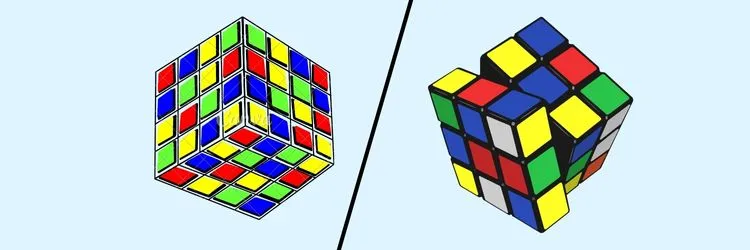
Have you ever tried solving a Rubik’s Cube? Damn! It’s tough. When I first attempted it, it took me five hours to solve. Now, I’m faster, but I still need more practice.
If you can solve a 3×3 Rubik’s Cube in 5–10 minutes, hats off to you! But if you can’t, you should definitely learn—it’s a skill that keeps your mind sharp, enhances memory, boosts patience, and improves problem-solving abilities.
Isn’t that an important skill to master?
The faster you solve it, the more you sharpen your thinking skills. And here’s something fascinating—Max Park, an American Rubik’s Cube speed solver, holds the world record for the fastest 3×3×3 average solve (according to WCA standards): 4.86 seconds, set in 2022! (Source: Wikipedia)
How to learn:
It’s challenging if you try to solve a Rubik’s cube with no experience. It’s better you go with a step-by-step process to solve it. Here are the 5 steps to solve a 3X3 Cube:
- Complete the first layer cross.
- Complete the first layer of corners.
- Complete the second layer.
- Complete the third layer cross.
- Complete the third layer corners.
You can check out this article for further guidance.
8. Martial Arts
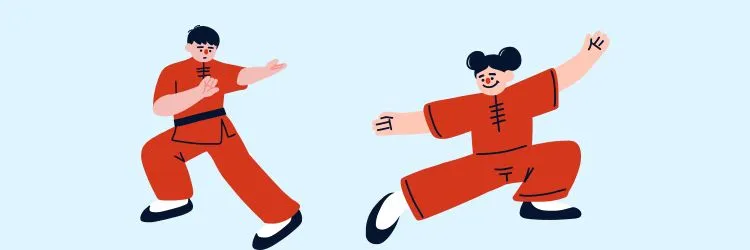
Why am I talking about Martial Arts this time? You might be wondering.
Well, my goal isn’t to turn you into a champion, but learning this skill offers a ton of benefits, both physically and mentally.
Martial arts make you stronger, healthier, and more confident. They help you develop self-discipline, and most importantly, they teach you self-defense, which is an essential skill everyone should have.
There are many types of martial arts to choose from—Judo, Karate, Kung Fu, Taekwondo, and more. Now, it’s up to you to decide which one interests you the most.
How to Learn Martial Arts
If you’re serious about learning martial arts, watching video tutorials or taking online classes won’t be enough. The best way to learn is by joining a local martial arts class where you can receive hands-on training and practice regularly.
Consistency is key. As the saying goes, Two days of procrastination can undo two months of preparation.
So, stay committed—because once you break the habit, getting back on track becomes much harder.
9. Sketching
Sketching is one of my favorite hobbies—what about you? Do you enjoy painting, sketching, sculpture, or any other form of art?
If not, you should consider learning this skill! And if you believe that art is something people are born with, I’m here to tell you—that’s just a myth. There’s nothing in the world you can’t learn.
Why Should You Learn Sketching?
Sketching offers a lot of benefits beyond just creativity:
- Improves focus and attention span – You stay engaged for hours while sketching.
- Boosts brain development – It activates multiple parts of the brain, enhancing cognitive skills.
- Enhances hand-eye coordination – Making everyday tasks easier and more precise.
How to Learn Sketching
Sketching is just like any other skill—it can be learned with practice! If you’ve never drawn before, start with the basics:
- Pick an easy cartoon image or character to draw.
- Take small steps—outline the basic shapes first.
- Expect to make mistakes! Erase, adjust, and keep going.
- Stay motivated, even if your first sketches aren’t perfect—progress comes with practice.
The key is consistency—keep sketching, and you’ll be amazed at how quickly you improve!
For a better step-by-step guide about how to sketch, I must recommend you to check out this article and its further lesson. You may also pursue any of the below sketch courses on Udemy in video form content:
- The Ultimate Drawing Course – Beginner to Advanced
- The Complete Sketching and Speedpainting Super Course
10. Speed Reading
Are speed reading and fast typing really skills worth learning?
You might be wondering. Well, just like other useful skills, these too have their own importance and benefits.
Why Should You Learn Speed Reading?
- Boosts brain function – Reading faster forces your brain to process information more efficiently.
- Enhances memory and clarity – Helps you retain information better and think more clearly.
- Improves speaking skills – Reduces hesitation and fumbling while speaking aloud.
- Saves time – You can absorb more content in less time while maintaining focus.
- Builds self-confidence – The more fluently you read, the more confident you become.
Personally, what I love about speed reading is that it challenges the brain to work harder
11. Dancing
Dancing is a great skill to learn in your free time. Have you ever watched someone perform the moonwalk? It looks fascinating, doesn’t it?
Well, the moonwalk is just one move—imagine what you could do if you learned even more! Dancing isn’t just about having fun; it also:
- Increases your social confidence.
- Improves your fitness, posture, and coordination.
- Helps you stand out at social events like parties and weddings.
As a bonus, if you’re a college student struggling financially, you can even perform as a street dancer (busking) to earn money and manage your expenses.
How to Learn
Just like martial arts, dance is best learned through in-person practice, especially if you’re a complete beginner. Here’s how to start:
- Join a local dance class that teaches a style you enjoy. If you like hip-hop, enroll in hip-hop dance lessons. If salsa excites you, go for it!
- Build a strong foundation first. Once you can comfortably follow dance moves, online dance classes can be a great way to refine your skills and learn more styles.
So, are you ready to hit the dance floor?
12. Trekking
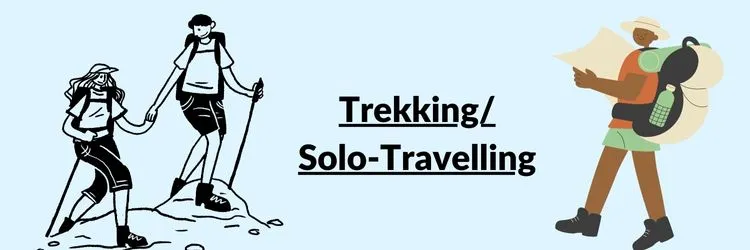
Trekking is an invaluable skill to learn, especially if you love adventure and travel. Imagine setting up your own tent, cooking noodles with friends, and experiencing the pure beauty of nature—sounds exciting, doesn’t it?
But trekking isn’t just about adventure; it also:
- Boosts physical health and strengthens endurance.
- Reduces stress and clears your mind.
- Exposes you to new cultures and diverse people.
However, trekking is easier said than done. It’s similar to mountain climbing—it may look simple, but it demands courage, proper preparation, and the right resources to be successful.
How to Learn
Trekking isn’t something you can learn through a course, but you can train and prepare yourself effectively. Here’s how:
- Stay fit – Include regular exercise in your daily routine.
- Adapt to different environments – Get comfortable in various weather conditions and terrains.
- Go with friends – Trekking is more enjoyable and safer with a group.
- Develop patience and endurance – Train yourself to stay calm and persistent.
- Watch trekking videos – Learn techniques from experienced trekkers on YouTube.
- Plan ahead – Prepare early and ensure you have all the necessary trekking gear.
Once you’re well-prepared, you’ll be ready to embark on an unforgettable trekking experience!
13. Playing Violin or Guitar
If dancing isn’t your thing, why not try learning a musical instrument like the violin or guitar? Playing an instrument is a great way to relax and unwind. Personally, whenever I feel low, the sound of a violin always calms me.
But beyond personal enjoyment, learning an instrument can also benefit your professional life.
- If you’re a skilled guitarist, you can perform as a street musician (busking), showcase your talent, and even earn money.
- Music enhances creativity, focus, and discipline, which can help in various aspects of life.
Isn’t it an amazing skill and hobby to learn?
How to Learn
No matter which instrument you choose, proper guidance is essential. Here’s how you can start:
- Take structured lessons – Whether online or offline, classes provide step-by-step training.
- Explore online platforms – Websites like Udemy and Skillshare offer beginner-friendly courses for various musical instruments.
- Practice consistently – Learning an instrument requires patience, so keep practicing daily.
So, which instrument would you love to learn?
14. Storytelling
Storytelling is a powerful skill that enhances communication—whether spoken, written, or digital. It allows you to share emotions, ideas, and experiences, making it invaluable in both professional and personal life.
In the workplace, effective storytelling helps build trust, motivate teams, and simplify complex ideas. It’s not just about telling a story—it’s about grabbing attention, inspiring others, and making an impact.
Think about Tony Robbins, Oprah Winfrey, or TEDx speakers like Praveen Wadalker—their storytelling captivates audiences. You can’t help but stay engaged when they speak.
Even if you have inspiring stories to share, if you don’t tell them the right way, they won’t resonate with your audience.
How to Learn
Storytelling is a skill for those who genuinely want to connect with people and inspire them. But remember, it’s not about fiction or fantasy stories like Harry Potter—it’s about real-life experiences, whether personal or something you’ve learned from others.
A compelling story should always include struggles and lessons learned. That’s what makes people relate to and remember it.
Here’s a perfect example of storytelling:
To improve your storytelling skills, you may read this article published by Forbes that certainly boosts your storytelling skills.
If you have no idea about storytelling, you may also take the course Intro to Storytelling: Wow Your Crowd on Udemy which will give you a basic guide.
15. Writing Skill
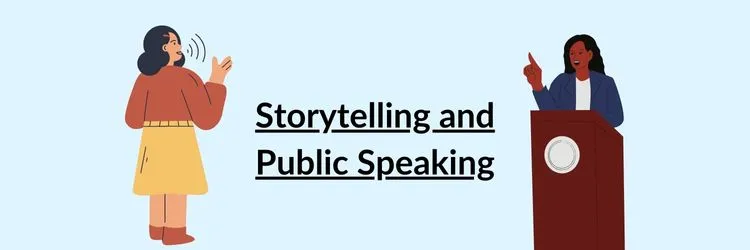
If you’re reading this and feel inspired to take action, then I’ve successfully applied this skill. Like storytelling and persuasion, writing is an essential skill—one that can transform both your personal and professional life.
Good writing helps you craft engaging LinkedIn posts, create compelling sales copy, and communicate ideas effectively. It’s especially valuable for those who are shy or struggle with verbal communication.
But beyond that, strong writing skills can open doors. Imagine convincing your professor to grant leave with a well-written application or earning money as a freelance writer or blogger, just like I do.
How to Learn
Based on my experience, here are some practical ways to improve your writing skills:
- Read articles and analyze their structure. Pay attention to how writers present ideas.
- Use paraphrasing tools to discover new sentence structures and synonyms.
- Conduct deep research to write well-informed and compelling content.
- Share your thoughts and experiences on platforms like Quora, Medium, and LinkedIn. Observe how readers respond.
- Start a blog and write daily. In writing, your goal should be to improve every day. The more you write, the better you get. That’s exactly how I improved.
16. Time Management
Time management is one of the most valuable skills you can learn.
No matter your profession, mastering this skill can help you achieve your goals, maintain a work-life balance, and become more punctual.
You’ve probably tried creating routines before—waking up early, exercising, reading, working, studying, and handling household tasks.
But sticking to a schedule? That’s the real challenge. The good news? Managing your time effectively is possible once you know the right approach.
How to Learn
You might have come across countless time management courses. While they can be helpful, I believe you already have the ability to manage your time—you just need the right strategy.
One simple yet effective technique I follow is inspired by Gyan Vatsal Swami’s method:
- 8 hours for work
- 8 hours for sleep
- Divide the remaining 8 hours into three key areas:
- 3F → Family, Friends, Faith
- 3H → Health, Hygiene, Hobby
- 3S → Soul, Service, Smile
This approach ensures you make time for everything that truly matters. Try it out and see how it transforms your daily routine!
With this technique, you can balance everything.
17. Basic Home Maintenance & Repairing
Home maintenance and DIY skills are essential for everyone—whether you’re a college student or managing a household.
From cleaning your home, fixing a faulty fan switch, repairing a vehicle, or changing a punctured wheel, relying on professionals for small tasks can be costly and unnecessary. Even learning how to decorate and organize your home can be both practical and enjoyable.
Personally, I love painting and decorating my house during festivals—it’s a hobby that brings me joy. If you also want to develop these useful skills, here’s how you can get started.
How to Learn
I wouldn’t recommend taking a formal course unless you need in-depth training on home maintenance. However, to get the best tips and DIY home decor guidance, you can explore these reliable websites:
You may also subscribe to Lone Fox, InteriorMaata, and a few other YouTube channels that provide enough free content on home maintenance and decor.
Start with small projects, experiment with home improvements, and you’ll soon be able to handle basic repairs and decor effortlessly!
18. Manifestation Meditation
Meditation is all about training your mind to stay focused and present. If practiced consistently for at least 21 days, it can bring positive changes in your mindset and overall well-being.
On the other hand, manifestation is based on the law of attraction—what you think, whether positive or negative, shapes your reality. Learning how to combine meditation and manifestation can help you take control of your thoughts, emotions, and desires, making you more open to opportunities from the universe.
How to Learn
Here’s how you can start practicing meditation and manifestation effectively:
- Set your intention – Be clear about what you want to achieve.
- Find a peaceful place – Choose a quiet environment for deep focus.
- Visualize your goals – Picture your desires as if they are already happening.
- Focus on positive affirmations – Repeat empowering thoughts and beliefs.
- Stay in the present moment – Avoid distractions and fully engage in the practice.
- Be consistent – Practice daily for at least 21 days to experience real transformation.
There is also a book that I’d like to recommend you read, which is ‘Manifestation Meditation: It’s Time to Meditate to Attract Your Best Life, by Elena G. Rivers. It’s available on Amazon.
Start today, and you’ll notice a shift in your mindset and energy!
Now It’s Your Turn:
So, we’ve broken down 18 of the most useful skills to learn this year—but of course, there are many more! If I included them all, this guide would turn into an entire eBook.
I hope you found this article helpful and inspiring!
Now, I’d love to hear from you:
- Which skill are you most excited to learn?
- Is there any important skill I missed that you think should be on this list?
Drop your thoughts in the comments!
Note: This post may contain affiliate links. If you purchase through our links, we earn a commission at no extra cost to you.
Happy Learning 🙂


I am going to start learning almost every skill one by one. You will not believe but this is the article I was searching for from a month. I can’t thank you enough for this❤️.
Hey Manahil,
I’m glad to hear that you found this article helpful. The skills listed are not only useful, but you’ll also find them enjoyable to learn. Happy learning!
Excellent article,I ll really try for sketching.thanks for guiding,It’s really a helpful article,bcoz I was stuck couldn’t understand what can I do.but I got my answer,tysm
I’m 16 it was so helpful a
thank you
Beautiful I’m learning a lot of skills through this platform
hi dear
these skills are for young people but what about the old people. some
are useful for old.
old people like gardening, pruning,swimming and so on.thank you for your skills recommended
Interesting article and informative information. Thank you
Thank you for reading it.
Another useful skill to learn would be social interaction with strangers, especially for introverts like me
We learn every day Thank very much
I found your article to be very well thought out and informative. Even though I can tell that English is not your first language, you have a very good command of the communication in English. I find one line particularly inspiring and compelling, “There is nothing in the world you can’t learn.” I love learning, and there are so very many ways to get educated in today’s world. Your article is a great spring board for ideas. It is at once encouraging and challenging. I shared it with my daughter and we both intend to learn some of the things that you list here, mainly finance, writing and story telling, sketching, and photography. My daughter also wants to learn dance, martial arts, musical instrument and a language.
Thank you so much for sharing your insights and encouragement. All the best to you in your endeavors.
Thank you so much for your sharing the basic usefull skills that roughly known but not we dont deeply understanding thier importance for human being
Thank you so much for sharing this useful article.
It’s just beautiful to work on our own self and make us a better one than yesterday.
Nothing can be better than learning a new thing.💫
Thank you for your lovely comment! I’m glad you found the article useful. Continuous learning truly is a beautiful journey. Here’s to becoming better every day! 💫😊
Wonderful article! I’m going for the finances skills, I need them!😩 in fact I need them all, but taking one at a time. Thank you very much!
Thanks so much! 😊 Focusing on financial skills is a great choice. Taking it one step at a time is the best way to go. If you need any recommendations, feel free to ask. Good luck! 💪
These days I am working on English language learning and open this article just to read in English and it’s very helpful for me to improve myself in up coming days ,I will definitely learn these skills one after the other . My first priority is to be fluent in English and second one to master excel point and goes on…
Thank you so much, this article is very useful.
This was really useful, thank you very much.
I’m turning 17 this month and I just graduated from high school ,I don’t really have any clear goals to pursue, but this helped me alot. I’ll try my best to learn all of them. Thank you
You’re very welcome, and thank you for your kind words! Congratulations on graduating — that’s a huge milestone, especially at 17! It’s totally okay not to have everything figured out yet. The important thing is that you’re open to learning and growing, and that mindset will take you far. Take your time exploring what you enjoy, and don’t be afraid to try different things. Wishing you all the best on your journey 🙂
How can I connect to you personally? I want to learn certain things from you. This article was really beautifully written. Thanks alot!
Hey, if you’d like to connect with me personally, here’s my LinkedIn: https://www.linkedin.com/in/saurabh-barnwal-6525231a0/